Purpose, authenticity and nepo-brands
How a billboard for Surreal got me thinking about class, snobbery, inverted snobbery and that M&S Status Quo ad (again)
Forewarning: this post stems from a tweet that got more attention than I usually get. Cursed as I am by nuance, what follows isn’t a blistering ‘take down’ of the poster you see above, or the person behind it. He’s an obviously successful entrepreneur, and there are worse problems in the world than light-hearted billboards. But I think it goes to important issues about class, purpose, authenticity and nepotism, which I’m now going to think about aloud.
So this Surreal poster floated into my LinkedIn timeline the other day. They’re a cereal brand I’m marginally aware of— they’ve done lots of quirky, fourth-wall-breaking advertising, in a post-Innocent, wacky kind of way.
Knowing nothing more about the brand, I contemplated the poster and… didn’t like it. It seemed obvious to me that it was meant as a joke, albeit a weird and angsty one—and the winky ‘Can I borrow a tenner?’ postscript is clearly meant to soften it. Nevertheless, it struck me as a self-regarding, narcissistic use of ad space—one of those self-heroising LinkedIn posts brought to life and expensively plonked on the street. Reader, I tweeted:
Like the poster, my post was meant as a joke. It’s not that I’d ever *really* want a business to fail in a cost-of-living crisis—that would be a pretty shitty thing to want. But it’s Twitter (okay, X) and only a few hundred people read my tweets, and I suspected they’d all get the not-entirely-serious intent, so I went ahead and posted it.
50,000 views later, the tweet comes across as a louder and harsher dunk than I intended. But such is social media—maybe all my followers are terrible people who like dark jokes, so let’s blame them.
In the meantime, the story had become more interesting. After that initial tweet, I started wondering who Kit Gammell’s dad actually was. After all, I might feel even guiltier about the tweet if it turned out Kit was some self-made working class hero who’d fought his way out of a tough background and was actually best mates with his single-parent dad and now engaging in an endearing joke as part of a family bet. There were all sorts of heartwarming scenarios that could have made the poster land differently, and confirm I was right to say ‘this probably makes me a bad person’.
Turns out the truth was slightly different. A bit of digging confirmed Kit Gammell is the son of Sir Bill Gammell, oil tycoon, former rugby player, and close friend of the Blair and Bush families. Kit is also the grandson of James Gammell, chairman of investment firm Ivory & Sime, and brother of Mike Gammell, co-founder of Days Brewing—the non-alcoholic beer company that is making similar waves in its market as Surreal is doing in cereal.
None of this is reason to dislike Kit Gammell. We’re all dealt a hand we don’t choose in life, and I imagine Kit and Mike weren’t given their businesses on a platter. Both no doubt put a lot of independent work into making it happen, and I suspect their father deliberately stepped back and let them. At the same time, all the indirect help is obvious and unavoidable—the wealth, the schooling, the family connections, the subtle inside tracks that privilege affords you. Many people have some degree of it, and this happens to be a high-level case. But it would be inverted snobbery to look down on anyone purely because of it.
And yet, and yet. The poster surely lands differently when you know about the people involved. Consider the surface semiotics: an ordinarily-dressed young bloke on a slightly gritty-looking urban street, celebrating the success of his humble box of cereal. My initial reading, mainly subconscious, was that this was a tale of a plucky bloke done good, albeit now bragging in a slightly off-putting way. Since then, I’ve discovered that Kit Gammell and his brother Mike Gammell frequently exchange good-natured banter on LinkedIn, as part of an ongoing fraternal rivalry, with their dad occasionally chipping in. All fine, and the poster is part of that banter (or brandter as some call it, given there’s an element of Surreal and Days talking to each other through the competing brothers).
But step back and look at the poster again, knowing all this context. What I see is immensely privileged people taking out billboards in the public realm to make family in-jokes to each other: humble-braggy, self-heroising, LinkedIn-fodder in-jokes about how successful they all are. And the ‘Can I borrow a tenner?’ joke has to land differently when you know Bill Gammell is worth $50 million.
No one actively makes the choice to be born into a privileged family. But you can make the choice not to write billboard-sized open letters to your dad, all while hoping no one asks who your dad actually is, and sending out the coded signal you’re some kind of everyman self-made hero.
For me, what adds an extra sting is the fact that both Surreal and Days are part of that wave of Gen Z, voguish brands that like to talk about ‘authenticity’ a lot. There’s a sense of fourth-wall-breaking informality about them: ‘We’re nice people, not like those stuffy old traditional businesses!’ But when you look at the lineage, the Gammells of today are the direct inheritors of the investment banks or oil companies of the past, just in more casual clothes.
And, as I truly want to emphasise, I don’t think this makes them bad people—I suspect they’re nice and their dad is smart, and I admire their achievements. My interest is more a sociological one—what are the family and class dynamics that underlie so much of marketing and business today?
Because you see the same dynamic in so many other places.
Take Holly Branson, Chief Purpose and Vision Officer at Virgin, and daughter of Virgin founder Richard Branson. It’s not by choice that she was born into privilege, and I’m sure she’s well qualified for the job, but purpose sits weirdly with nepotism. It’s one thing to inherit your dad’s company, as countless business people have done over time (mostly men). But it’s another thing to reconcile the nepotism with a role that involves endless talk of diversity, equity and inclusion, while you’re a walking example of family connections mattering more than ever.
You can say the same about Patagonia, where Yvon Chouinard came up with a novel arrangement to make his children and grandchildren powerful political influencers for life, flown to Davos and earnestly consulted on policy, all for being the descendants of a gilet maker.
Then there’s Edelman, the public relations company that has powered so much of the purpose years. As I noted on LinkedIn, they’ve had a change of heart of late—the first three images above are taken from 2018. The bottom right is from 2024. Without missing a beat, Edelman has decided that getting into politics is a bad idea for brands, despite relentlessly pushing the narrative that Gen Z was demanding it—I guess Gen Z has mysteriously changed its mind.
Edelman should know about Gen Z, because it went as far as setting up a special Gen Z Lab, ostentatiously appointing gender-fluid Harris Reed as ‘ZEO’ to head it up.
Less reported was the appointment of the more conventionally titled ‘CEO’. That role went to Amanda Edelman, daughter of boss Richard Edelman. Once again, it sits weirdly to have a nepo-baby heading up what is purportedly an intensely progressive challenger of stuffy old hierarchies.
Nepo-babies have been noted in wider culture—Hollywood is full of them. I’m not clued up enough to list them all here, but the cover above gives the general idea.
More recently, Saltburn—the supposedly searing satire of rarefied Oxbridge social climbing—was written by Emerald Fennell, whose 18th birthday party was featured in Tatler. Write what you know, I guess.
There are many more examples, but listing them veers close to inverse snobbery. And the truth is, I resist that kind of snobbery—because I don’t think your past dictates your future, and I don’t think anyone can be reduced to a bunch of demographic data that determines their destiny. You can be an upper-class boy from Eton and turn into George Orwell, or a working-class girl from Huyton and turn into Esther McVey. You can be a middle-class writer from Shropshire and write a brilliant satire of American elites in Succession, or a Sheffield-born Etonian and play an Irish-American cop in Baltimore. (Dominic West, who played Jimmy McNulty in The Wire described being an Old Etonian as “a stigma that is slightly above 'paedophile' in the media gallery of infamy”—privilege can be something you have to live down.)
Either way, the best approach is always to focus on individuals rather than identity groups, whether they’re class-based or otherwise. Humans are complicated that way.
With the Surreal and Kit Gammell story, I got some pushback on Twitter for appearing to revel in some kind of pre-schadenfreude, or a form of tall poppy syndrome, where we love seeing successful people cut down to size. Why can’t contrarians like me just relax and celebrate an amusing ad by a boy done good?
And it’s weird because, in my last post on this Substack, I was doing exactly that—and being labelled a contrarian for it. Jack Norbury is the guy on the left in the picture above—absurdly young M&S Food branch manager, who dropped out of sixth form and rose through the ranks, then started attracting millions of views for videos he posted on his official M&S Devizes TikTok account. He bypassed the M&S in-house agency to go straight to the CEO and suggested a post involving a corporate anthem. From there (in a twist I wasn’t entirely aware of in the last post), it seems M&S marketing manager Sharry Cramond was the one to suggest Status Quo specifically—she’s the same person who was involved in the Coles ad in Australia, also featuring Status Quo.
ANYWAY. The point is: this is an actual story of a boy done good, and a large part of adland was happy to shoot it down, with cries of ‘This is why you shouldn’t use an in-house agency!’ or patronising reflections on how this was undermining the hard graft of proper branding agencies who had worked tirelessly to build a premium brand that was now being destroyed by Francis Rossi. Never mind tall poppy syndrome, it was more like stamping on the merest hint of a green shoot popping up through the cracks in the Soho pavement. Back in your box, Jack!
What’s all this got to do with purpose? Well, I was only being half-serious in my ‘GODDAMNIT!’ tweet, but I do think there’s a sense in which Gen Z is being played. There are so many late millennial / early Gen Z brands that play in that authenticity, dress-down-Friday, wacky, informal, infantilised, vaguely purposeful space. And there are certainly plenty of Edelmans and McKinseys who relentlessly work the ‘everything is totally different with Gen Z’ narrative, claiming that all their top-down purposeful power grabs are the result of grassroots pressure from below. But zoom in on a few stories and you often find it’s the same old wine in new bottles, because ultimately that’s all purpose is too—feel-good packaging for the same old product.
I hope The Road to Hell will make that case persuasively, and I also hope my next post will contain a pre-order link. Please check back, or follow me on Twitter, where my posts will no doubt go back to getting 200 views.
UPDATE: Half an hour after posting this, I saw there’s been a new twist in the tale—a counter-poster from Mike Gammell, founder of Days. As I say above, “What I see is immensely privileged people taking out billboards in the public realm to make family in-jokes to each other: humble-braggy, self-heroising, LinkedIn-fodder in-jokes about how successful they all are.”
UPDATE (9 FEB): And now there’s a reply from the Dad (checked it out and it’s real). Of course, it’s signed ‘Dad’ and not ‘Sir William Benjamin Bowring Gammell FRSE, Founder of Cairn Energy’.
Meanwhile, I did some StreetView snooping and tracked the site to a location in Clapton, right opposite BSix Sixth Form college, where the students are among the poorest in the country. It’s a final, painful twist in the tale to imagine these kids looking out at the self-congratulating brandter between two young entrepreneurs done good, and thinking ‘Maybe I’ll get my product in Sainsbury’s one day too’. Hopefully they will. But hopefully they’ll also find out the £50 million backstory that lies behind the scribbled ‘Dad’. I think it would be nice if the family made a donation.
Thanks for reading. For anyone new here, I’m a writer of poetry, downbeat diaries, branding and advertising projects, articles for Creative Review and The Guardian, books about design, and occasional songs. My book The Road to Hell will be coming out in April.





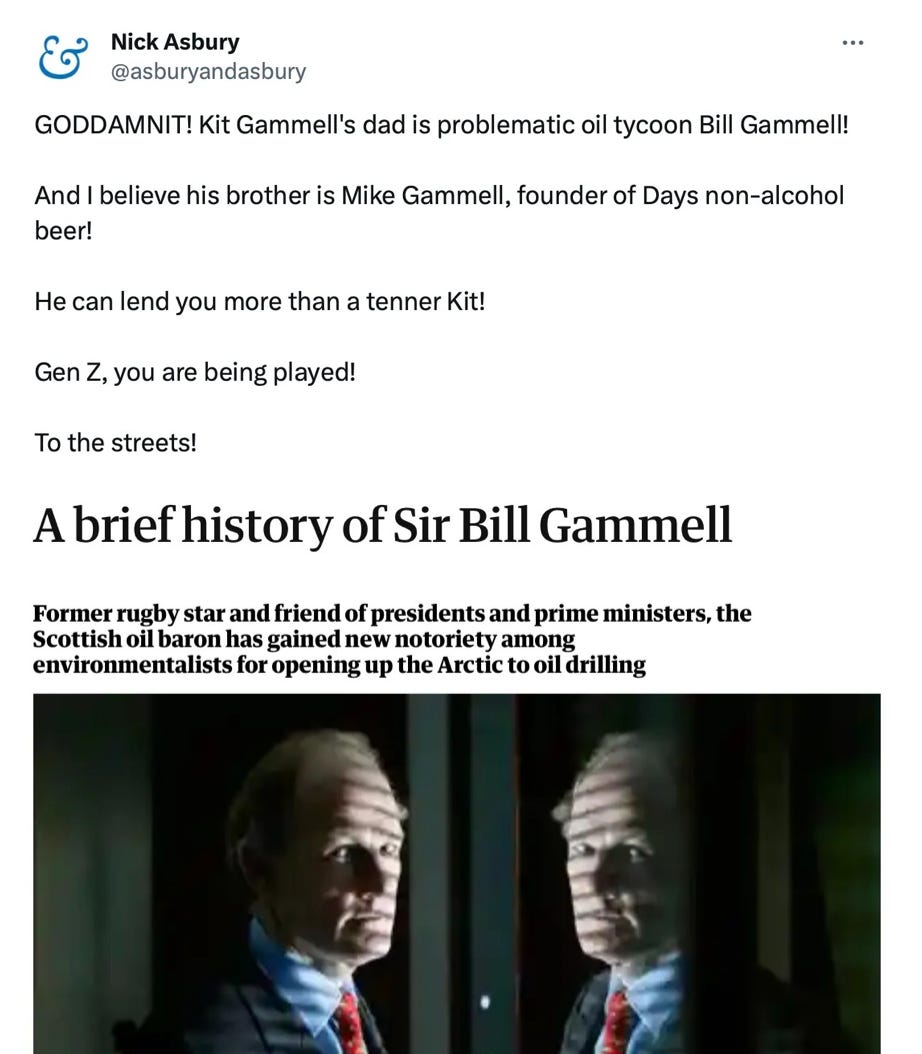

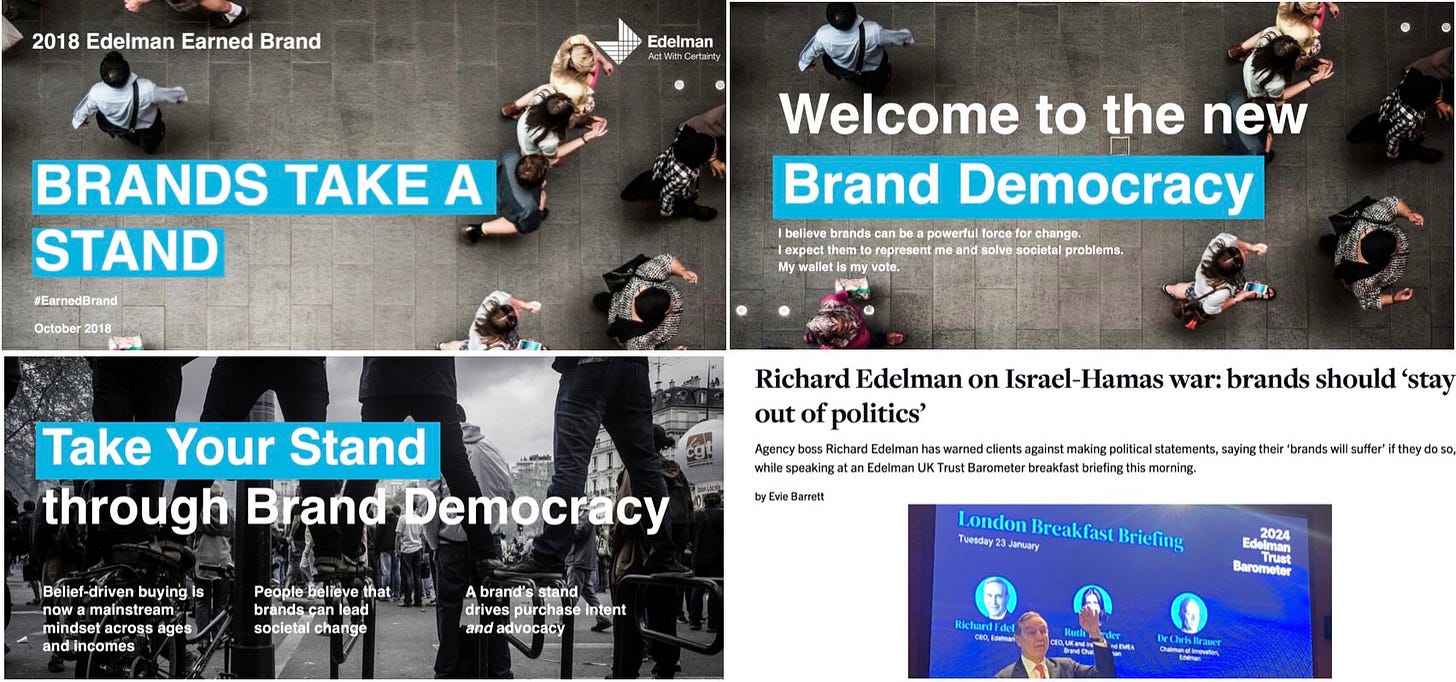

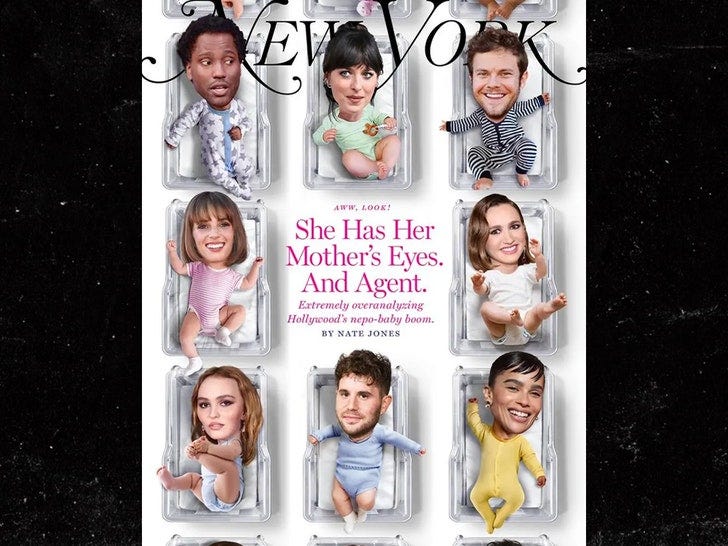
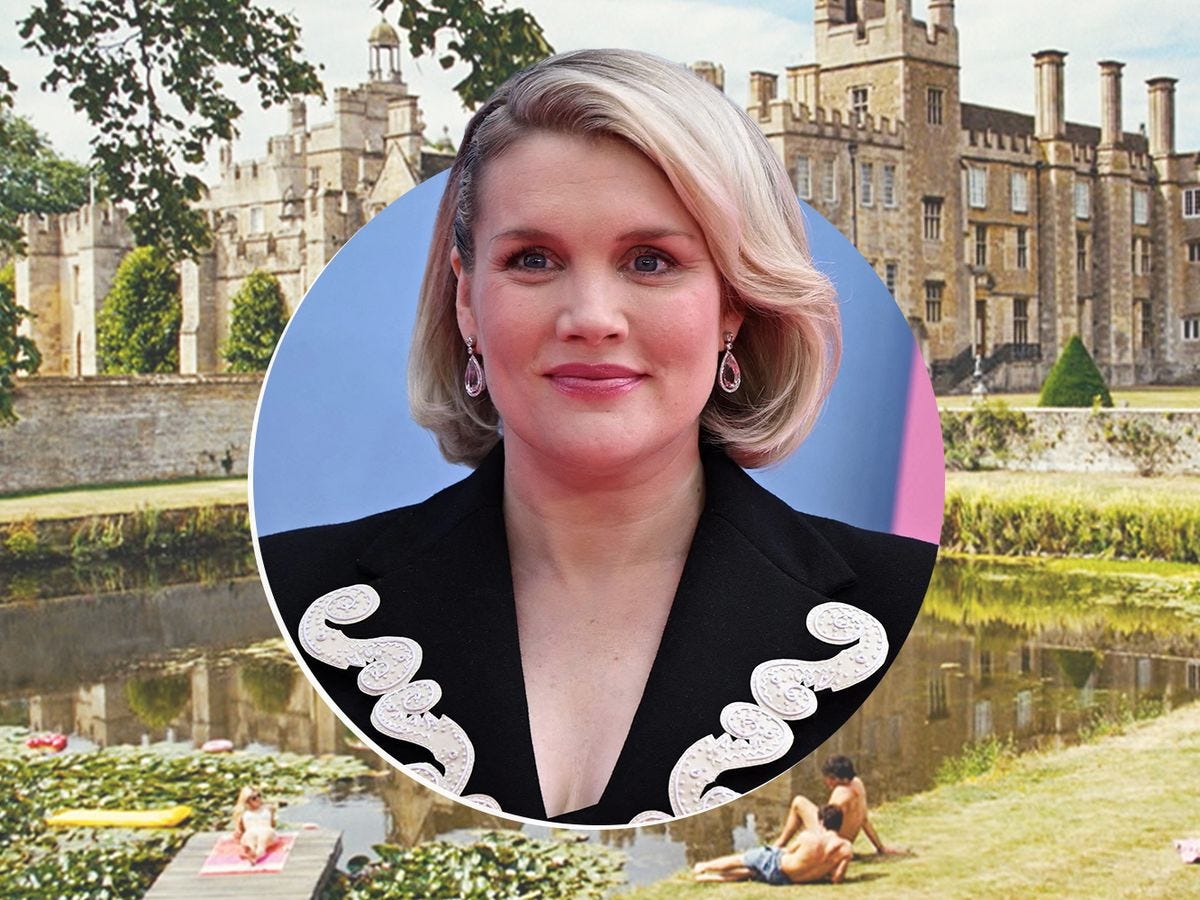
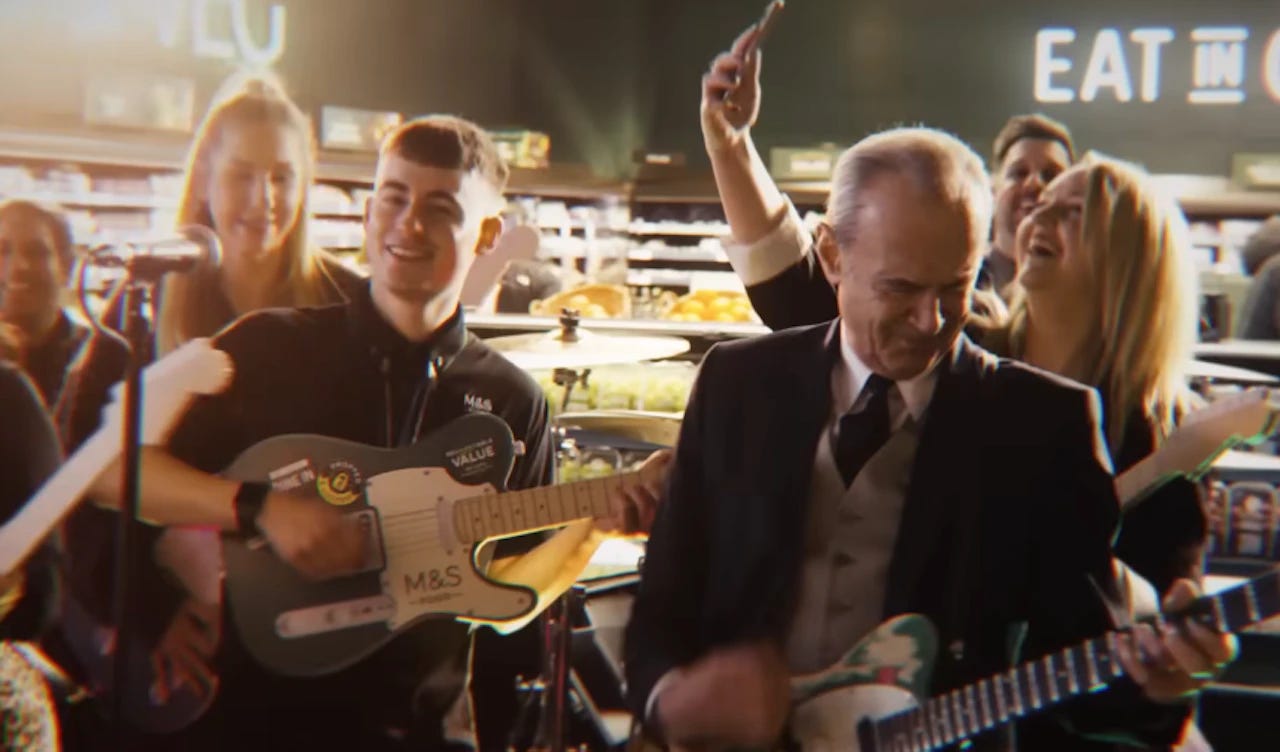
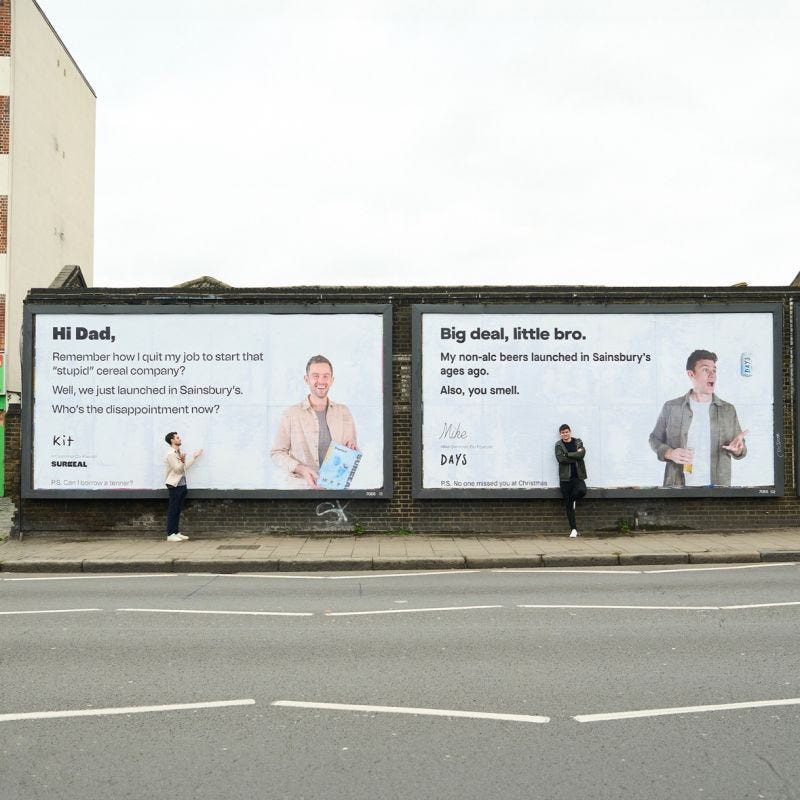
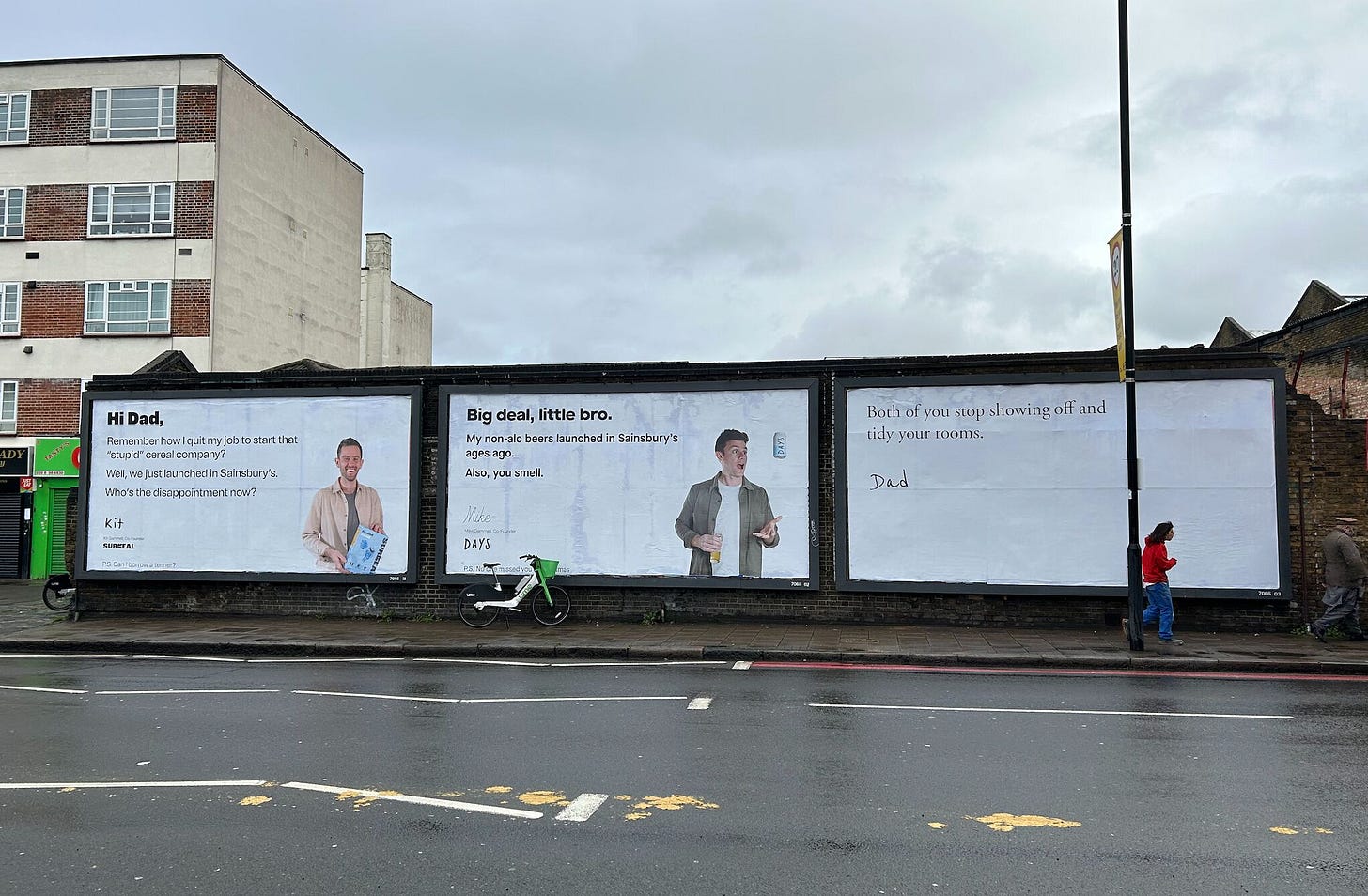

Excellent post. I've just cross-posted on my own substack www.thenewera.uk
I love the wordplay: surreal / cereal. Thanks for an interesting post. Advertising takes you down some rabbit holes for sure.